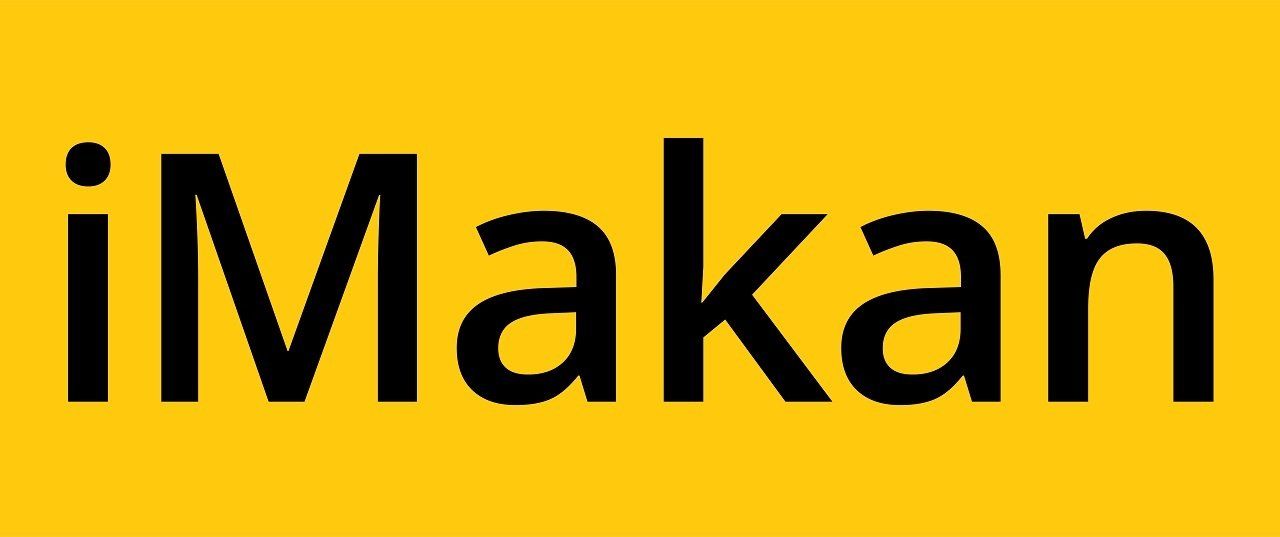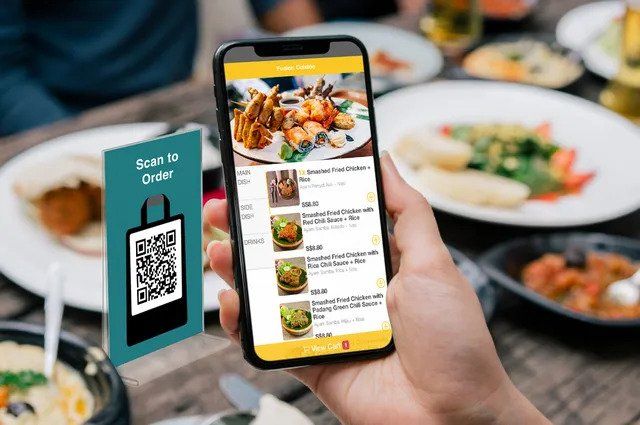Using digital tools to build resilient F&B businesses.
Since the pandemic, things are not the same as before. We are still adjusting to the “new normal” brought about by measures put in place to curb the spread of Covid19. The new normal has brought about lesser manpower availability, less dine in spaces, and most of all, heightened sensitivity to cleanliness in the public. Thus, to build a resilient F&B business, incorporating digital tools in the right areas is essential.
Helping employees feel safe returning to work
The risk of a second wave of infections is a big cause of concern, especially for those working in the service line. F&B staff are in direct contact with hundreds of customers daily, increasing the risk of them catching the virus.
Digital Ordering Solutions
Digital ordering solutions
like iMakan, can help build resilient work places in many aspects. Here are some:
1. Reduces heavy dependence on manpower, which is a challenge to get in the F&B industry. Customers placing orders through their smartphones by scanning a QR code, allows you to receive high volumes of orders simultaneously without the need for order.
Without digital ordering solutions it is difficult toi ncrease revenue without increasing operational expenditure on manpower.
2. Practice safe distancing and contactless ordering. Do away with physical menus which have to be sanitized from time to time as studies have shown that the virus can stay on a surface for up to 72 hours.
As customers scan a QR code and order through their smartphones, your staff can reduce interaction with customers, reducing the risk of virus transmission.
On top of that, iMakan digital ordering solution also gives you the option to use e payments for contactless payments.
3. Limited seating in restaurants has caused long queues which can be hard to manage. Digital ordering enables your customers to place orders in the queue, keeping them engaged, and reducing ordering time at the tables. This will greatly greatly increase your table turnover.
4. Food delivery and self collection ordering. iMakan digital ordering integrated with delivery partners to enable you to open up multiple ordering channels for maximum revenue growth.
During the circuit breaker, online food ordering surged in popularity. Due to the public’s concern of being outdoors for long, putting themselves at a risk of infection, many have turned to pre ordering food online for delivery and self pick up.
This has formed a new consumer behaviour that, if you do not tap into, your are missing out on a lucrative market.
Shop cleanliness
The importance of cleanliness in your F&B outlet cannot be reinforced enough. Even without the pandemic going on, outlet cleanliness should be a big part of your staff’s duty. Everyone has a part to keep each other safe.
Contact Tracing
Contact tracing has one of the biggest part in Singapore’s success in being able to contain the virus. With the systems and capabilities to quickly track where a cluster has formed, it can be contained more effectively. Encourage staff and customers alike, to check in and out with SafeEntry once they enter or exit your premises.
With the above suggestions put into place, you will be able to build a resilient F&B business, to remain sustainable and even prosper throughout this pandemic.
For more information on iMakan solutions, leave us your contact below, or call us at (+65) 6271 5788. Stay safe and stay healthy!

Artificial Intelligence (AI) is no longer reserved for tech giants — it’s now reshaping the way F&B businesses in Singapore operate. Whether you run a café, a hawker stall with digital ordering, or a multi-outlet restaurant chain, AI can make your operations smarter, your marketing sharper, and your profits stronger. Here are 11 ways AI is transforming the F&B landscape . 1. AI Chatbots: 24/7 Service Without Extra Staff AI chatbots on WhatsApp, websites, or kiosks can instantly handle FAQs, reservations, and delivery queries. Customers don’t need to wait for staff, and your team can focus on food and service. It’s like having an extra employee who never sleeps. 2. Personalized Promotions: Relevance Wins Every Time Instead of wasting money on generic discounts, AI ensures offers are tailored to customer behavior. A frequent coffee buyer gets a free pastry offer, while a lunch regular gets a bundle deal. This drives higher engagement and loyalty with lower costs. 3. Dynamic Pricing: Smart Flexibility for Revenue Growth AI adjusts pricing based on demand, stock, or time of day. For example, offer discounts during quiet hours to fill seats or push premium pricing for popular dishes during peak demand. This keeps margins optimized without hurting customer experience. 4. Upsell & Cross-Sell Suggestions: Bigger Bills Automatically Every time a customer orders, AI can recommend complementary items: “Add fries for just $2” or “Upgrade to a set meal.” These automated prompts consistently raise average order value — a key profit booster in F&B. 5. Smart Loyalty Programs: Retain Customers Before They Leave Traditional loyalty points are passive. AI-powered loyalty detects when customers stop visiting and sends targeted offers to re-engage them. By preventing churn, you grow long-term revenue without spending heavily on new customer acquisition. 6. Revenue Forecasting: Plan with Confidence Guesswork is risky in F&B. AI forecasts sales down to the day or even the hour. Managers can then schedule staff, order stock, and prep food more accurately — minimizing waste and boosting efficiency. 7. Profitability Analysis: Focus on What Works Not every dish contributes equally to profits. AI highlights high-margin items so you can promote them more aggressively while identifying “loss leaders” to improve or remove. This ensures every menu decision is data-driven. 8. Fraud Detection: Protecting Every Dollar Unusual transaction patterns, repeated voids, or suspicious discounts can indicate fraud. AI flags these in real-time, helping owners prevent revenue leakage and maintain tighter controls across outlets. 9. Menu Engineering: Science Meets Creativity AI categorizes items into “stars” (high profit, high sales) and “dogs” (low profit, low sales). This helps restaurants redesign menus strategically, giving more visibility to profitable items while trimming underperformers. 10. Customer Taste Prediction: Serve What They’ll Love Next By studying order histories, AI predicts new dishes or flavors your customers are likely to enjoy. For example, if many order spicy chicken, an AI may suggest launching a spicy rice bowl. This reduces guesswork in menu innovation. 11. Trend Tracking: Stay Ahead of the Market AI scans social media and online reviews to identify rising trends — whether it’s bubble tea flavors or Korean-inspired desserts. Acting early allows you to stay competitive and win trend-seeking diners. Conclusion AI isn’t replacing people — it’s empowering F&B businesses to thrive in Singapore’s tough market. From smarter menus to fraud detection, AI equips you with tools to increase revenue, cut costs, and keep customers happy. Looking for a POS system that integrates AI-powered insights and loyalty tools? iMakan is here to help. Click here to schedule a demo!
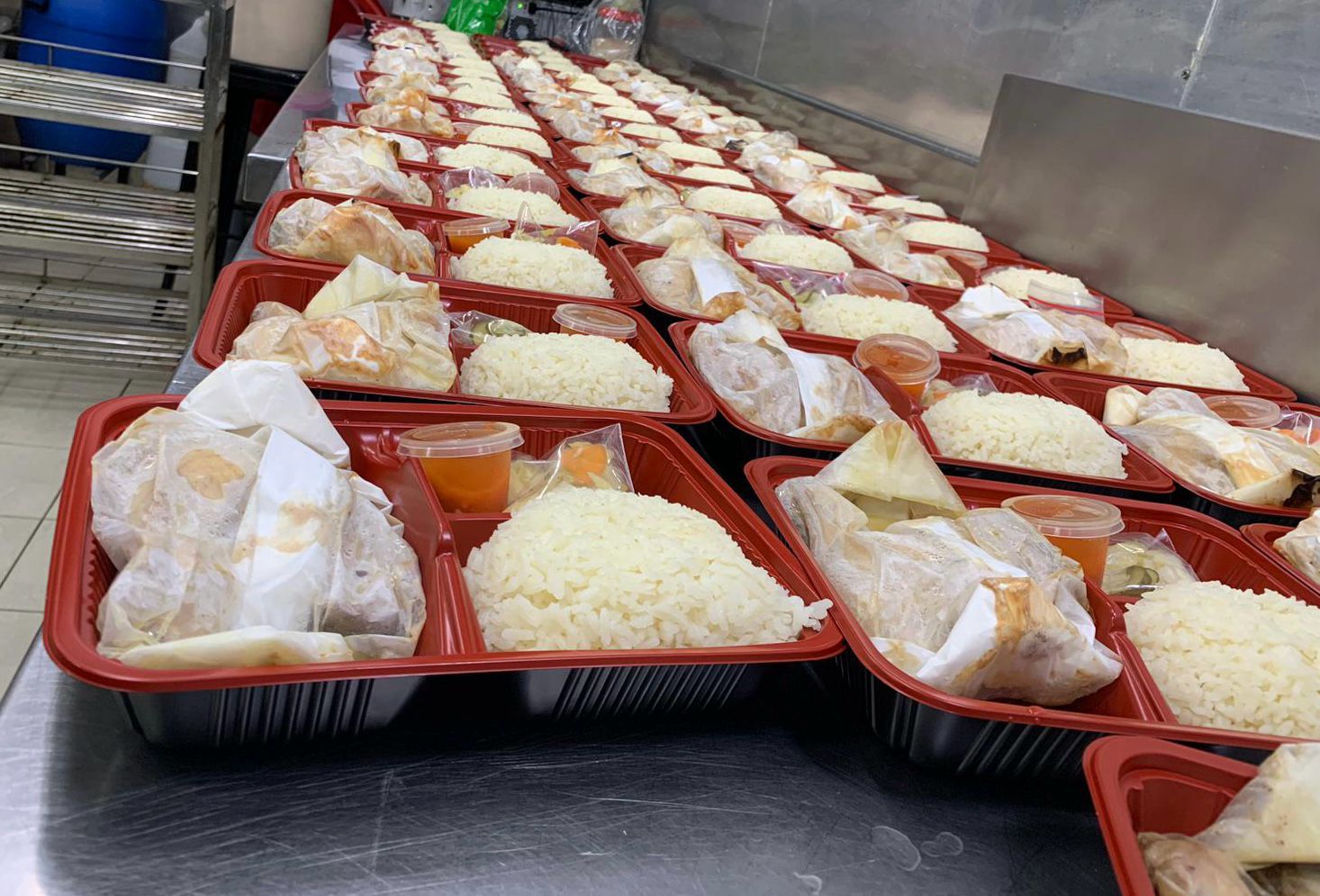
Singapore’s F&B industry has always been resilient, but operators are facing a worrying trend: fake bulk orders . These fraudulent orders are often placed via phone calls, messaging apps, or even online forms — where someone commits to a large catering or group order but never pays or collects the food. While they may appear to be isolated incidents, the reality is that fake bulk orders create serious operational, financial, and reputational damage for business owners. The Real Impact on F&B Operators 1. Food & Resource Wastage Large orders often require businesses to buy extra ingredients, dedicate prep time, and use significant packaging resources. When these orders turn out to be fake, all of that effort ends up in the bin. Unlike unsold food from regular operations, bulk order wastage is concentrated and can reach hundreds of dollars in value at once. 2. Lost Sales Opportunities Kitchens have finite capacity. When chefs prioritize bulk orders, it often means slowing down service for regular dine-in or takeaway customers. In the worst cases, genuine orders are rejected or delayed because the team is occupied — only for the bulk order to be fake. This creates double losses: wasted food and missed real revenue. 3. Operational Stress Managing bulk orders requires careful coordination — from inventory planning to scheduling staff. A fake order doesn’t just waste food; it disrupts the workflow, stresses employees, and affects service quality for actual paying customers. 4. Financial Strain Margins in F&B are notoriously thin. One large fake order could wipe out an entire day’s profit or even push a small café or restaurant into the red for the week. For hawkers or single-outlet businesses, the financial hit is especially painful. 5. Damage to Reputation When operations are disrupted, paying customers often suffer the consequences: slower service, quality drops, or even sold-out menu items. Negative reviews and word-of-mouth from disappointed customers can have longer-lasting effects than the fake order itself. Why It’s Happening More The rise of instant communication platforms like WhatsApp and Telegram makes it easy for pranksters or scammers to place fake orders. Without a payment gatekeeper , businesses have no way to differentiate serious customers from fake ones until it’s too late. How F&B Businesses Can Respond Secure Pre-Payment Implement a deposit policy for all large orders. Even requiring 30–50% upfront can deter pranksters and secure commitment. Adopt Digital Ordering Systems An online ordering platform with integrated payments ensures that orders are only confirmed once payment is made. This reduces fraud and saves admin time chasing customers for deposits. Staff Training Train staff to recognize red flags: suspiciously large orders from new numbers, vague details about collection, or refusal to provide deposits. Simple questioning can help filter out fraudulent requests. How MEGAPOS Protects You With MEGAPOS Online Ordering , merchants no longer need to worry about fake orders. Customers are required to pay upfront online before the order is confirmed. This ensures: Guaranteed payment before food preparation Seamless integration with POS and kitchen workflows Reduced fraud risk and wasted resources Better order tracking for accountability By adopting secure payment-first ordering, F&B businesses can protect their margins, improve staff morale, and focus on serving real customers. Contact us to learn how MEGAPOS Online Ordering can safeguard your business by clicking here .

Imagine a loyal customer leaving your cafe after a delicious meal. They tell a friend about your signature dish, and the friend comes in the next day—eventually becoming a regular too. This chain of referrals is more powerful than any ad campaign. The Power of Customer Referrals Referrals work because they are based on trust . People are far more likely to try a new restaurant when it’s recommended by someone they know personally. This leads to higher customer satisfaction, repeat visits, and larger average orders , all of which increase profits. Key Benefits: Lower Marketing Costs Instead of spending thousands on ads, you can leverage your existing satisfied customers. Every positive referral acts as free marketing , delivering new customers at minimal cost. Boosted Loyalty and Engagement Referred customers are inherently more loyal—they start with a positive perception of your brand. They’re also more likely to engage with loyalty programs, leave positive reviews, and participate in promotions . Stronger Brand Image Word-of-mouth builds credibility. When multiple customers recommend your cafe or restaurant, it reinforces the perception of quality and reliability. Compounding Growth Each referred customer can become an advocate themselves, creating a virtuous cycle of growth . Over time, referrals can generate a network effect that scales your business organically. Making Referrals Happen Offer Attractive Rewards Incentivize referrals with meaningful rewards like: Discounts on next visits Free drinks or desserts Bonus loyalty points Make sure the rewards appeal to your target customers and are easy to redeem. Simplify the Process Make sharing effortless with QR codes, mobile links, or app-based referral systems. The easier it is for customers to refer friends, the more they will participate. Personalize the Invitation Personalized messages increase engagement: “Bring a friend and you’ll both enjoy 15% off your next meal.” Personalized communications show customers that you value their participation. Deliver Shareable Experiences Customers are more likely to refer when their experience is memorable. Focus on: Instagram-worthy dishes Unique beverages or seasonal specials Warm and attentive customer service Encourage sharing with table displays, social media handles, or branded hashtags. Leverage Feedback Loops Ask new referred customers how they heard about you. Use this data to optimize referral campaigns and reward top advocates. Measure Your Success Track your program with metrics such as: Number of new customers from referrals Repeat purchase rates of referred customers Engagement rates with referral tools (QR codes, apps, social shares) Conversion rate of referred leads into loyal customers Referrals are not just a marketing tactic—they’re a strategic growth lever . By encouraging customers to advocate for your brand, providing rewards, and creating memorable experiences, your F&B business can enjoy higher profits, loyal patrons, and sustainable growth . If you are looking for F&B solutions such as a POS system, QR ordering, self ordering kiosks and CRM that helps you manage your referral programmes, click here to find out more

Running a restaurant, café, or takeaway in Singapore has never been more challenging. Rental costs are rising, manpower shortages are the norm, and competition is fierce with new eateries popping up every month. In such a climate, F&B owners are searching for smart, low-cost ways to attract and retain customers. One underused yet highly effective tool is the promo code . Flexible, trackable, and easy to implement, promo codes can do far more than just cut prices — they can transform your marketing, boost customer loyalty, and provide valuable insights. Here’s why promo codes are a powerful lifeline for F&B businesses today. 1. Win Over First-Time Diners Many customers hesitate to try new places because they’re unsure if the food is worth the price. A simple promo code lowers that barrier and encourages trial. Example: “WELCOME10 – Enjoy 10% Off Your First Meal” Effect: This reduces risk for the customer while giving your business a chance to impress and convert them into repeat visitors. Think of promo codes as your digital sampling tool . Instead of giving away free food, you’re offering a discount that motivates trial but still drives revenue. 2. Keep Customers Coming Back Acquiring customers is tough — but keeping them is even harder. Promo codes linked to loyalty programs can nudge one-time visitors into becoming regulars. Example: “Get $5 Off Your Next Meal – Code: LOYALTY5” Effect: Customers feel rewarded and are more likely to return to claim their perks. Pair promo codes with your POS-integrated CRM system . Every time a customer redeems, it’s recorded, giving you insights into who your loyal diners are. With this data, you can run even more targeted campaigns. 3. Fill Empty Seats During Off-Peak Hours For most outlets, sales spike during lunch and dinner — but there’s a big slump between 2–5 pm and after 9 pm. Empty seats mean wasted rent and manpower. Promo codes are a great way to incentivize visits during these dead zones. Example: “TEATIME20 – Get 20% Off Desserts from 3–5 PM” Effect: Even a small boost in footfall during off-peak hours adds incremental revenue. This is similar to yield management in airlines and hotels — you maximize utilization during quiet times to improve overall profitability. 4. Grow Online Orders & Delivery Sales Food delivery is booming, but third-party platforms charge hefty commissions. Promo codes can redirect some of that demand to your own ordering channels. Example: “DIRECT4 – $4 Off When You Order From Our Website” Effect: Encourages customers to order directly, helping you save on platform fees. When integrated with your F&B POS system , these direct orders flow seamlessly into your kitchen operations, giving customers a smoother experience while you retain more margin. 5. Measure Marketing ROI with Precision Unlike generic promotions, promo codes are trackable. Each code redeemed gives you clear data on what’s working. Which campaign brought in the most new customers? Which influencer partnership drove actual sales? Which time-based offer increased footfall? By linking promo codes with your POS, you get real-time insights that let you adjust promotions, cut what doesn’t work, and double down on what does. This eliminates wasted marketing spend and ensures every dollar counts. 6. Leverage Influencer Marketing with Trackable Codes Influencer marketing is huge in Singapore’s F&B scene — from micro food bloggers to TikTok creators showcasing hidden gems. Promo codes make these campaigns measurable. Example: Partner an influencer with a unique code like “FOODIE10 – 10% Off Your First Visit”. Effect: You track how many sales that influencer drove, instead of guessing based on likes and views. This turns influencer collaborations into ROI-driven campaigns , helping you decide which partnerships are worth repeating. Conclusion: Promo Codes as a Smart F&B Strategy In tough times, every customer and every dollar matters. Promo codes give F&B businesses a flexible, cost-effective way to win new customers, reward loyal ones, fill empty seats, and track ROI. With the right POS system and CRM integration , promo codes become more than discounts — they become a growth engine that keeps your business competitive in Singapore’s fast-moving market. If you are looking for POS systems, CRM, QR Ordering, Online Ordering, click here to contact us to find out more!
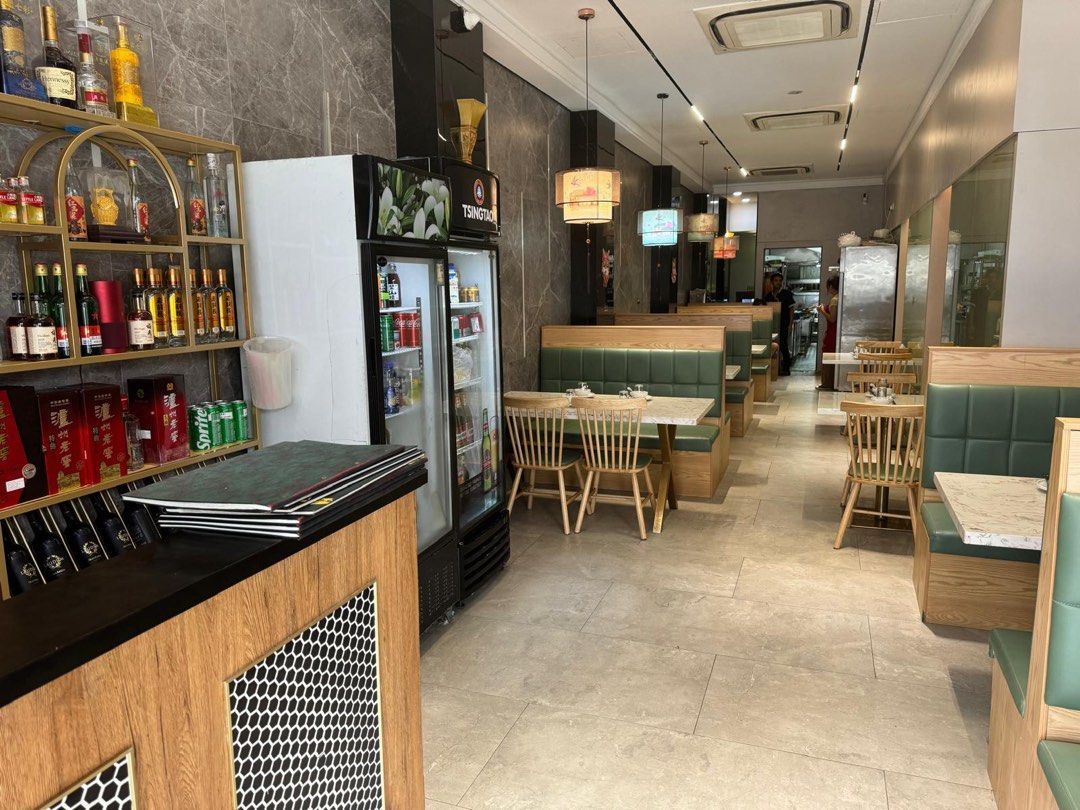
Ask any café owner or restaurant operator in Singapore, and you’ll hear the same challenge—rental prices are sky-high. For small F&B startups, this can make profitability feel like a distant dream. The good news? You can fight back using the right mix of technology and smart operations. Here’s how to keep your costs low, efficiency high, and customers happy—even with expensive rent. 1. Rethink Location and Shift Budget to Marketing A prime location isn’t always the best decision for a new F&B brand. Not just due to the high rentals, but when operating in prime locations you are likely to be competing directly with well established F&B brands. Pick a slightly less central area to save on rent Invest those savings in branding and promotions Use delivery apps as customer acquisition tools—promote aggressively so people discover your food first online, then offline 2. Cut Manpower Dependency with Automation Labour costs are climbing. Self-ordering kiosks and QR code menus help you: Operate with fewer service staff Speed up order processing Improve order accuracy Create a seamless customer experience 3. Control Inventory Like a Pro Throwing away expired food is like throwing away cash. POS-linked inventory systems let you: Track stock in real time Predict demand accurately Avoid over-purchasing and wastage 4. Fill Empty Seats During Off-Peak Hours With yield management strategies, you can keep the business flowing throughout the day. Flash deals via Instagram or TikTok Loyalty perks for off-peak diners Special menus available only between 3–5pm 5. Make Your POS the Heart of Your Operations A fully integrated POS can help you: Manage dine-in, takeaway, and delivery orders in one place Monitor sales trends Sync loyalty programs automatically Make faster business decisions based on live data While rental prices in Singapore won’t drop overnight, the right tech approach lets F&B startups run more efficiently, keep costs under control, and compete with bigger players. If you are looking for F&B solutions such as F&B POS systems, Self ordering kiosks, QR ordering, online ordering and CRM solutions, click here to enquire!

Launching a new café or restaurant in Singapore? One of your first major investments will be a Point-of-Sale (POS) system. While it's tempting to go for the cheapest POS package, smart F&B owners know better: not all POS systems are built the same. Why Cheaper Isn’t Always Better Budget POS solutions often cut corners on hardware quality, software flexibility, and customer support. You might get a basic tablet with limited features and little support when things go wrong. These systems may be fine for weekend hobbyists, but if you're planning to scale and operate seriously, you need something more durable and reliable. What to Look For in a Reliable POS Rugged hardware that withstands busy kitchens & long operating hours Responsive local support for peace of mind Features that matter: table management, self-ordering, CRM, inventory Easy integrations with accounting, delivery, and payment platforms The Long-Term Advantage Investing in a reputable POS vendor ensures you won’t need to replace or switch systems as you grow. You also benefit from software updates, technical support, and scalability from day one. Your POS system is the heartbeat of your F&B business. Choose wisely, and it’ll help you run smoother, serve better, and scale faster. Looking for F&B solutions? Click here to contact us!
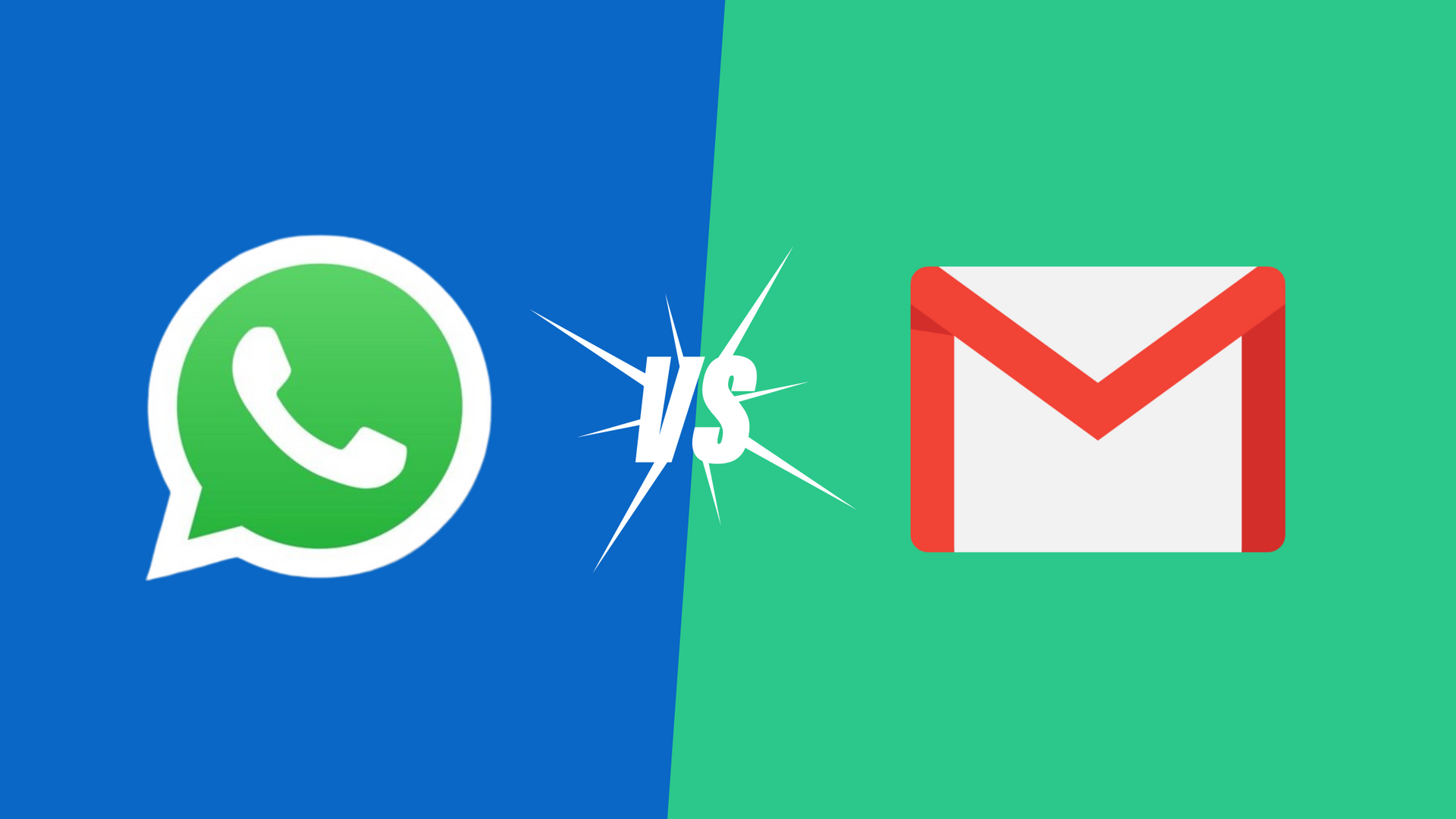
In Singapore’s fast-paced F&B industry, reaching your customers with the right message at the right time can be the difference between a packed house and a slow day. For years, email marketing has been the go-to method for loyalty engagement—but today, WhatsApp is emerging as a powerful contender. So which channel delivers better results for F&B businesses? Let’s break it down. Why More F&B Brands Are Choosing WhatsApp 1. Significantly Higher Open Rates WhatsApp messages boast open rates of over 90%, while email struggles to break 25–30%. This means more eyes on your promotions, event invites, or new product launches. 2. Real-Time Engagement Whether you’re pushing a lunch promo or a last-minute reservation slot, WhatsApp delivers instant visibility. Customers receive and act on messages within minutes, making it perfect for time-sensitive offers. 3. Mobile-First and Personal Almost every Singaporean checks WhatsApp multiple times a day. Messages arrive directly on the home screen—no inbox clutter or spam folders to worry about. The format also feels more personal, increasing engagement. 4. Great for Vouchers & Loyalty Promotions Sending eVouchers, birthday rewards, or exclusive member discounts via WhatsApp makes redemption easy. Customers just click and go—no need to dig through emails or apps. When Email Still Shines 1. Long-Form Content & Storytelling Emails are perfect for more detailed updates like a new seasonal menu, chef’s notes, or an outlet anniversary event. You have more space to build a narrative and showcase visuals. 2. Automation and Segmentation Email tools allow automated drip campaigns, customer lifecycle journeys, and membership renewals—ideal for maintaining long-term engagement. 3. Official Communications Invoices, reservation confirmations, newsletters, and account updates are still best suited for email, where they feel more formal and can be archived. Best Practice: Use Both, Together Forward-thinking F&B brands in Singapore don’t choose one over the other—they use both channels strategically. Use WhatsApp to push flash deals, eVouchers, and member reminders. Use Email to tell your brand story, build loyalty, and deliver richer content. Connect both through a unified CRM-POS platform like MEGAPOS to sync data, automate engagement, and track performance. Final Thoughts If you're only using email to engage your customers, you're leaving money on the table. WhatsApp provides the speed and reach modern diners expect, while email helps nurture deeper, longer-term relationships. The smartest F&B operators are combining both—powered by integrated POS and CRM tools that make outreach effortless and effective. Interested in trying to engage with your members through WhatsApp messaging campaigns, click here !
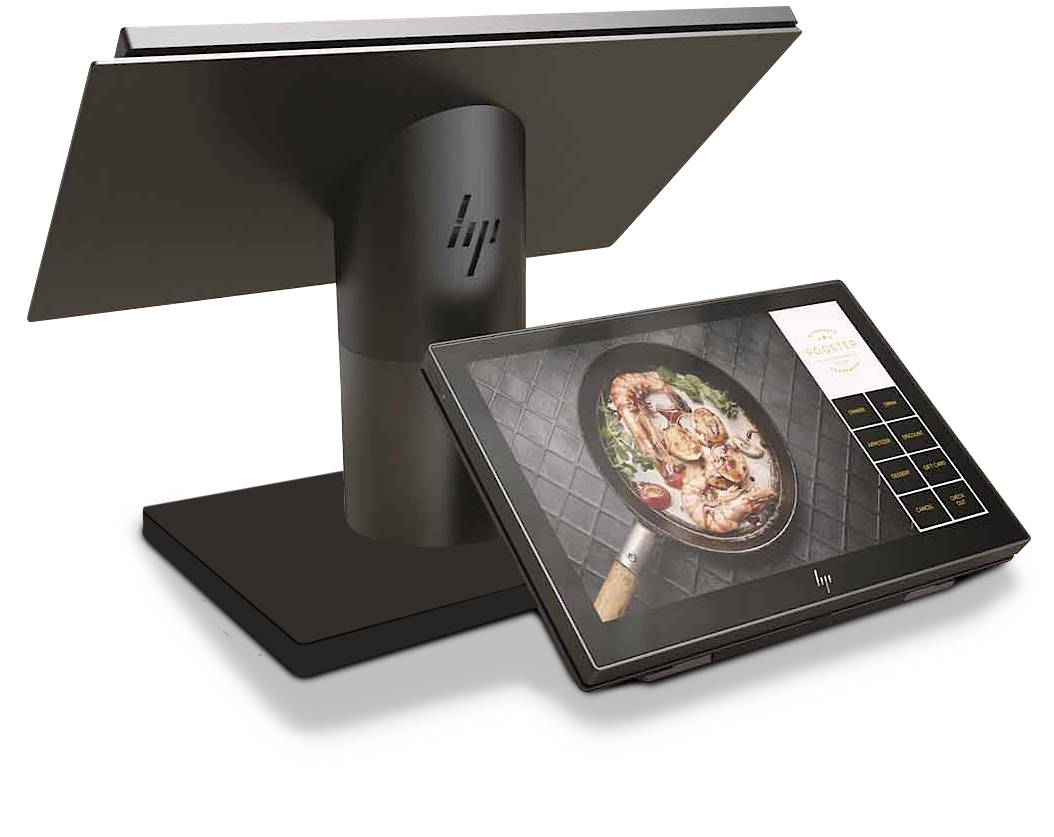
With all the hype about QR ordering, food delivery apps, and self-ordering kiosks, you might wonder— “Do I even still need a POS system for my café or restaurant?” Short answer? Yes. Absolutely. Even with all the fancy tech popping up, your POS system is still the beating heart of your F&B operations in Singapore. Here’s why. POS Systems Have Grown Up Gone are the days when POS just meant a cash register that printed receipts. Today’s POS is: Touchscreen, sleek, and fast Cloud-based (yes, you can check sales from your phone) Integrated with QR ordering and food delivery platforms Capable of syncing loyalty programmes, CRM, and even kitchen printers But What About QR Ordering and Delivery Apps? Great question. And yes, those tools are super useful, especially post-COVID. But they work better when they’re connected to your POS system. Think of it like this: Your POS is the central brain QR orders? Sent through the POS Grab or Foodpanda orders? Tracked and tallied in POS Payment? Handled by POS—cash, PayNow, NETS, e-wallet, you name it Why Singapore F&B Owners Still Choose POS in 2025 ✅ Everything in one place – orders, payments, and reports ✅ Live dashboards – check your shop’s sales from your phone ✅ Cut down on mistakes – no more handwritten orders or missed items ✅ Easy for staff to learn – training new hires is faster ✅ Membership and CRM – turn first-time customers into loyal regulars ✅ Inventory tracking – say goodbye to “Oops, we ran out of chicken wings again…” From Hawker Stalls to High-End Restaurants Whether you’re selling bubble tea at a kiosk or running an omakase spot in the CBD, a good POS system scales with you. Many brands in Singapore use cloud-based POS with self-ordering kiosks and QR so they can operate smoother and faster—especially during peak hours. Final Thoughts If you're planning to reduce manpower , increase efficiency , or grow your F&B brand , your POS should be doing more than just taking orders. It should support your entire ecosystem—from sales and staff to customers and kitchen operations. Need help choosing the right POS system for your F&B business? We’ve helped hawkers, bakeries, cafes, and restaurants across Singapore modernise with hybrid POS + QR solutions. Click here to contact us and find out more.

In Singapore's food and beverage industry, running an outlet efficiently means staying ahead with the right tools. A modern F&B POS system offers much more than just payment processing—it helps managers make smart decisions, improve daily operations, and increase customer satisfaction. Here are seven essential POS features every F&B outlet manager should be using: 1. Real-Time Sales Analytics Understanding what's happening in your business at any moment is powerful. Real-time reporting gives outlet managers instant visibility into sales trends, top-performing menu items, and hourly revenue. This lets you quickly adjust staffing, pricing, or promotions—especially during peak hours or slow periods. 2. Stock & Inventory Tracking Manual stocktaking is time-consuming and error-prone. A good restaurant POS automatically updates inventory levels with each order, alerts managers when stock is low, and helps prevent wastage. It ensures the kitchen runs smoothly while improving your food cost control. 3. QR & Digital Ordering With manpower challenges in Singapore, QR ordering reduces the need for floor staff while enhancing order accuracy. A cafe POS system that supports self-ordering and mobile payments also increases table turnover and improves customer experience. 4. Staff Productivity Metrics Tracking staff performance within your POS system allows you to see who's upselling successfully, managing tables efficiently, or lagging behind. Managers can use this data to reward top staff, improve team training, and maintain consistent service standards. 5. CRM & Loyalty Programmes POS-integrated CRM tools make it easy to run customer loyalty programs. Offer points, cashback, or birthday vouchers to build long-term customer relationships. This feature is especially valuable in Singapore's competitive cafe and casual dining scene. 6. Multi-Outlet Control Managing more than one outlet? A centralised POS system for F&B chains lets you monitor each branch’s performance, stock, and staff in real-time from a single dashboard—perfect for owners and regional managers who want visibility without micromanaging. 7. Delivery Platform Sync A great F&B POS system should integrate directly with platforms like GrabFood, Deliveroo, or Foodpanda. Orders flow straight to the kitchen or kitchen display system (KDS), minimising human error and speeding up prep during busy delivery hours. Conclusion A feature-rich POS system empowers outlet managers to run their operations more effectively. If you want to reduce costs, boost efficiency, and keep your staff and customers happy—start with the right POS technology. Need help upgrading your POS or training your team to use it better? Contact us by clicking here today.

In today’s F&B market, efficiency is everything. Without a smart F&B POS system , you may be missing critical opportunities to improve operations and sales. One feature that leading restaurants and chains rely on is real-time sales reporting. 1. Real-Time Sales = Real-Time Control Know what’s selling best, what needs restocking, and when your busiest hours are—all instantly from your POS system dashboard . No more guesswork, just data-driven control. 2. Manage Chains Easily from One System For multi-outlet operators, real-time sales reporting allows instant tracking across every branch. You can compare outlet performance, adjust stock levels, and deploy manpower where needed—all from a single platform. 3. Improve Operational Speed When you know your top-selling items and peak periods, you can prepare your kitchen, front-of-house, and staff shifts ahead of time—improving service speed and reducing order mistakes. 4. Boost Profit Margins Effortlessly A smart restaurant POS helps you cut unnecessary expenses, reduce over-ordering, and prevent dead stock—all based on real-time sales performance. Why This Matters for Singapore’s F&B Sector In a competitive market like Singapore’s, small improvements in operational efficiency can make a big difference. A well-equipped F&B POS system with live data gives you that edge. Ready to Upgrade? Contact us by clicking here to learn how our all-in-one POS solutions can deliver real-time sales insights for your cafe, kiosk, or restaurant chain.
